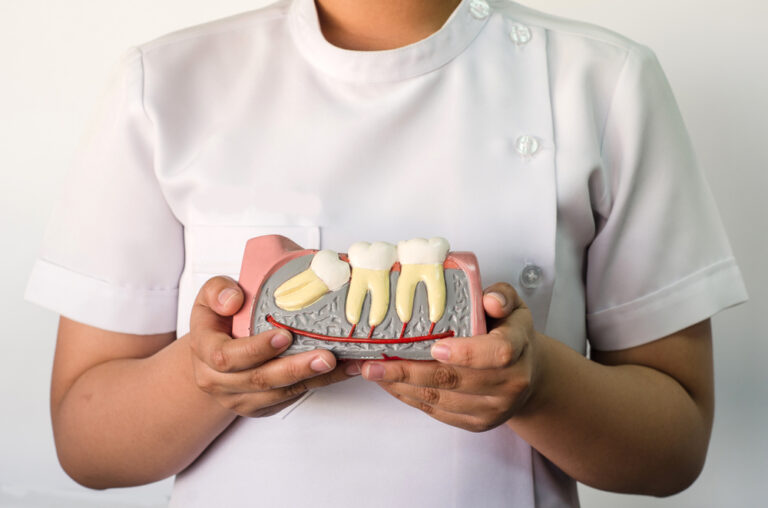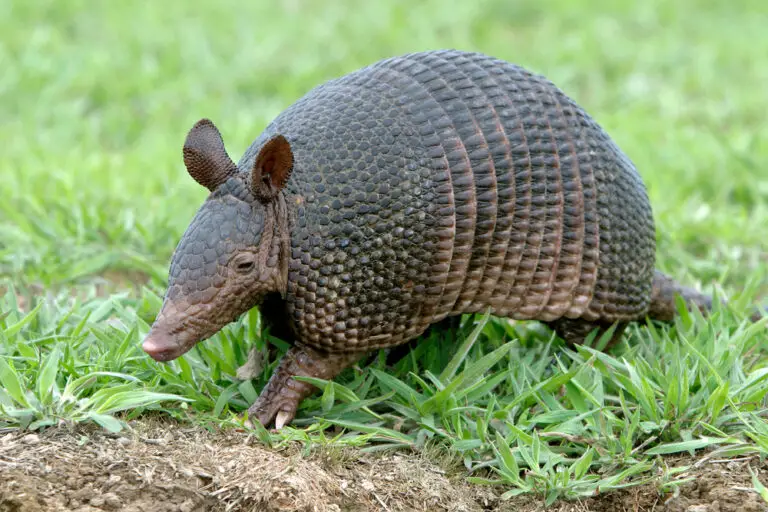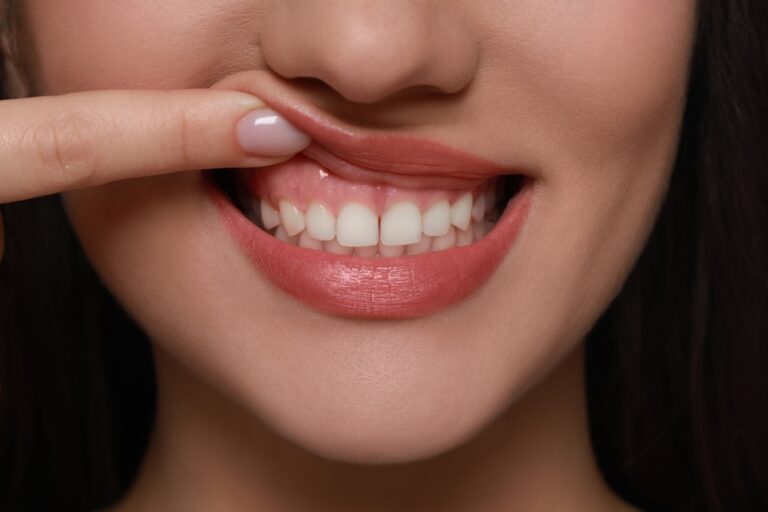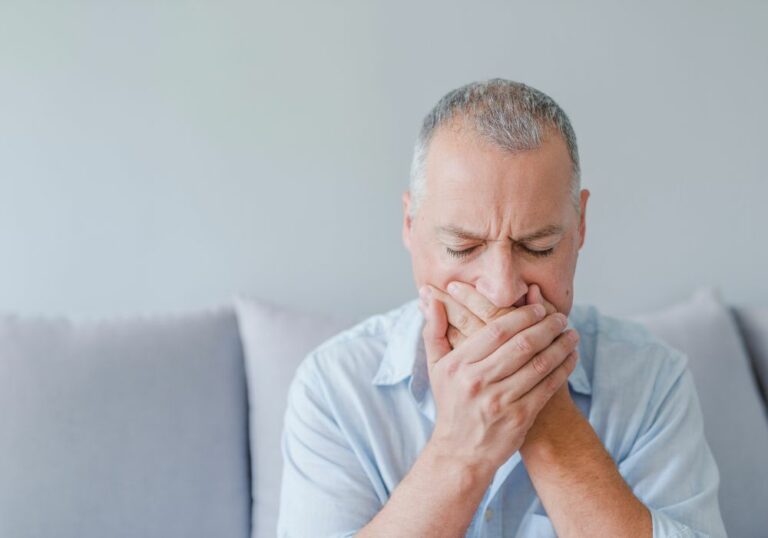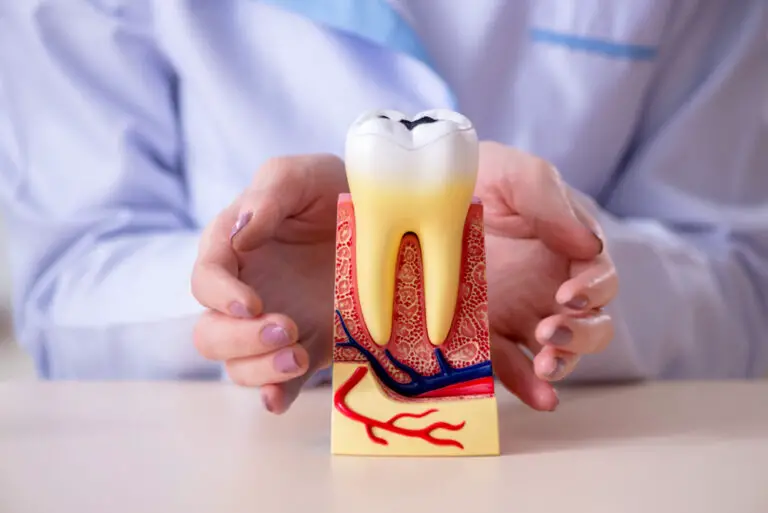Jogging and other cardiovascular exercise should not cause gum pain. But it’s common to experience gum discomfort or irritation during intense aerobic activity like running. While usually not serious, sore gums from jogging can be annoying and may indicate an underlying dental health issue. Understanding the causes and applying preventive tips helps you continue running comfortably.
Main Causes of Gum Discomfort When Jogging
Several key factors can contribute to irritated, painful gums when you’re jogging or running for exercise. Being aware of these causes helps you address and avoid them.
1. Dehydration and Dry Mouth
Being dehydrated with an inadequate fluid intake is one of the most frequent reasons joggers experience gum discomfort. When you don’t drink enough water before and during exercise, you can become dehydrated. This causes reduced saliva flow, leading to dry mouth.
Saliva contains important minerals and proteins that help lubricate and protect the soft tissues in your mouth. It coats your gums and keeps them moisturized when you breathe heavily through your mouth while running. Without sufficient saliva, your gums are more prone to inflammation, sensitivity, and painful irritation from the friction of your upper and lower teeth moving together rhythmically as you jog.
Severe dry mouth also makes you more susceptible to gum abrasions and ulcers, as the gum tissue lacks the protective cushioning effects of saliva. To prevent dehydration gum pain, be sure to drink plenty of water before and during your jog, even if you aren’t thirsty. Sports drinks can also help replenish lost electrolytes.
2. Gum Disease and Gingivitis
Underlying gum disease is another common source of gum pain and discomfort when jogging. Gum disease occurs when plaque buildup on teeth causes gums to become inflamed and infected. As gum disease worsens, it can progress to gingivitis and periodontitis.
With gingivitis, gums turn red and swollen, and bleed easily with irritation. Gums recede and deteriorate with periodontitis, exposing sensitive tooth roots. Ill-fitting dental appliances like dentures, braces, or retainers can also worsen gum inflammation and recession.
The constant motion of your mouth while running and repetitive impact on already inflamed gums then leads to increased pain and discomfort. Treating any gum disease with good oral hygiene, dental cleanings, and medications helps resolve this cause of jogging gum pain.
3. Environmental Irritants
Jogging outdoors exposes your mouth and gums to various irritants that can increase pain and discomfort. Cold, dry winter air lacks humidity and can dry out your gums. Very hot, dry summer conditions have a similar dehydrating effect. Wind and other weather elements may directly chafe and irritate gum tissues.
Pollen, pollution, and other particulate matter in the air can also collect in your mouth while breathing hard through both your nose and mouth when running. Seasonal allergies may make gums even more sensitive to irritants.
Wearing face coverings like balaclavas or masks can provide some protection from environmental irritants. Otherwise limiting outdoor jogging during periods of extreme temperatures or high pollen count may be necessary to prevent a gum irritation flare-up.
4. Vigorous Breathing Through the Mouth
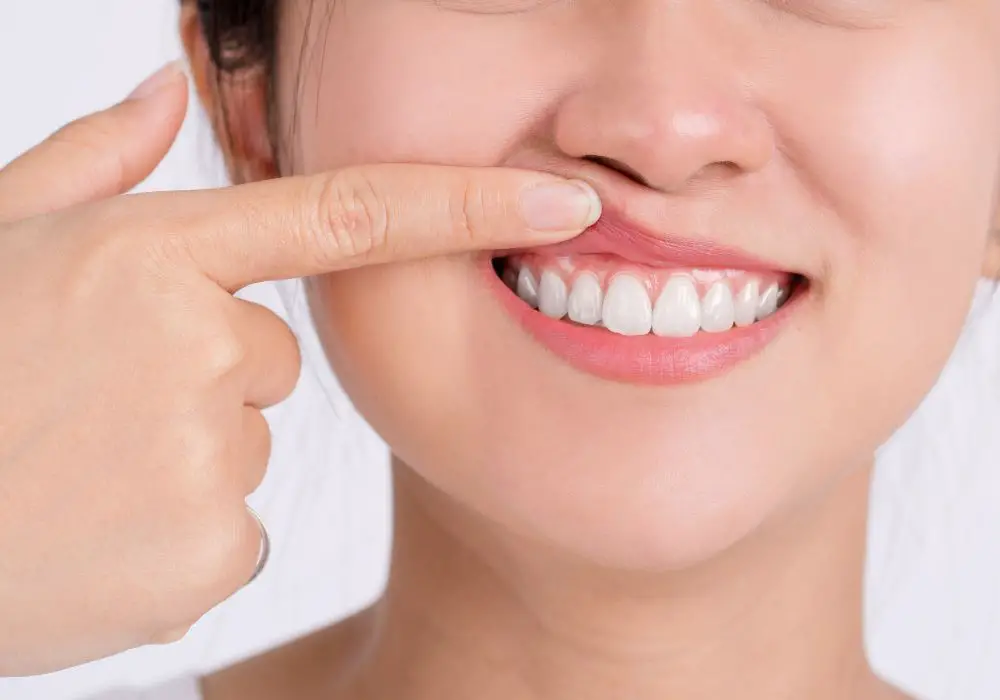
Many joggers tend to breathe heavily through their mouths as they run, even if they have no nasal congestion issues. This vigorous mouth breathing accelerates evaporation of moisture in the mouth.
Powerful inhaling and exhaling of air also causes the cheeks to billow rapidly in and out. This essentially works as a bellows that dries the gums and adjacent mouth tissues. Excessive mouth breathing while running essentially worsens dehydration and dry mouth problems.
5. Hard Chewing Motions and Clenching
The constant motion of your jaw, teeth, and cheeks while running can stress the muscles, ligaments, and gum tissues involved in chewing. If you have bruxism or tendencies to clench, grind, or chew aggressively, this compounds the muscular strain near affected gums.
Overworking the jaw muscles leads to their fatigue and painful spasms that radiate into your gums. Those with temporomandibular joint (TMJ) dysfunction often have flare-ups of pain with jogging due to dysfunctional chewing motions. Wearing mouthguards helps minimize excessive motions and grinding. Gentle jaw stretches before running can also prevent problems.
6. Poor Dental Work Fit or Design
Ill-fitting dental work like braces, dentures, bridges, or crowns may rub, poke, or press unnaturally on your gum tissue while running. The constant motion makes these pressure spots more painful and apparent. Sharp or rough edges on dental appliances can also chafe your gums.
See your dentist promptly if newly installed dental work is causing jogging gum pain for adjustment and smoothing. For existing dental work, your gums may have receded to expose edges that now irritate the gums during running.
Other Causes of Gum Pain When Jogging
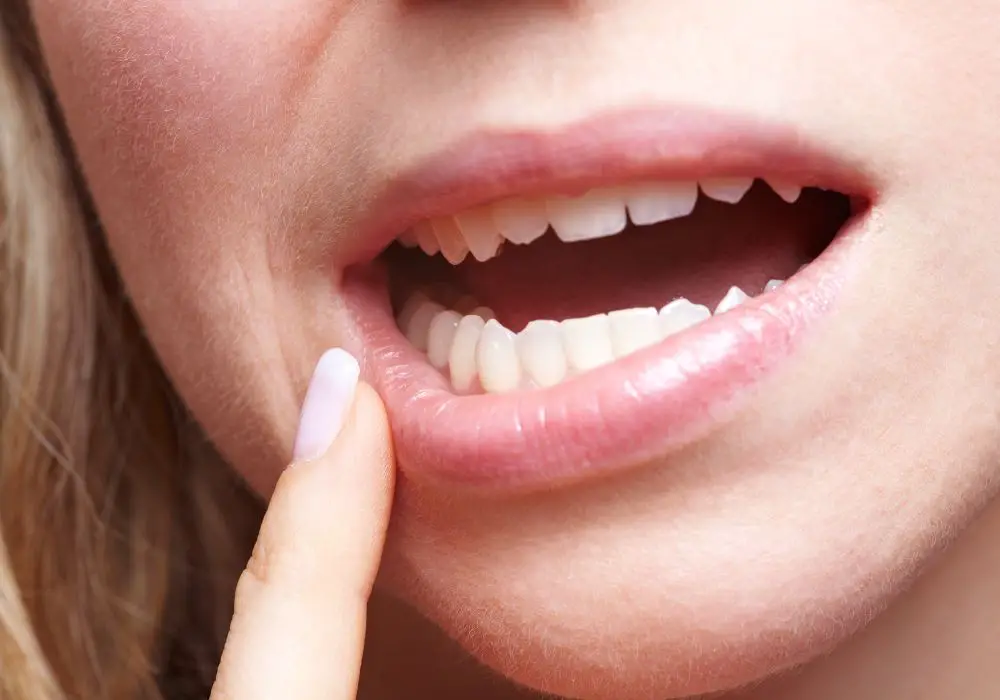
Some less frequent causes of painful, sore gums from jogging include:
- Oral infections – Gum abscesses, cold sores, and bacterial infections like gingivitis can all make gum tissues tender and painful. See your dentist for antibiotics or antiviral medication if needed.
- Canker sores – These shallow oral ulcers often arise on gums and may rub or rupture while running. Protect them with dental wax until healed.
- Allergies – Seasonal allergies contribute to gum swelling and increased sensitivity due to inflammation. Antihistamines and avoiding pollen can help minimize this reaction.
- Sinus pressure – Congested sinuses from colds or allergies may radiate pain and pressure to upper gums when jogging. Treat the sinus condition for relief.
- Grinding and clenching – These habits put excessive bite force on the gums which may manifest as discomfort when running. Wear a mouthguard.
- Aggressive flossing – Floss too roughly and you can create gum abrasions. Use proper flossing technique and gentle pressure.
Preventing Gum Pain When Jogging
Use these tips to help prevent or minimize gum pain and irritation when jogging:
- Stay hydrated – Drink plenty of water before and during jogging to prevent dehydration and dry mouth. Carry water if running for long distances.
- Use lip balm or petroleum jelly – Coat your gums with a layer of protection against irritation and chapping. Reapply frequently.
- Get fitted for a custom athletic mouthguard – Have your dentist make a comfortable mouthguard that cushions your gums from excessive motions.
- Rinse with cool water – Swish water around your mouth after jogging to moisturize gum tissues and wash away irritants.
- Limit vigorous mouth breathing – Consciously try to breathe more through your nose rather than mouth to reduce moisture loss.
- Stretch jaw and facial muscles – Gentle stretching before and after running helps prevent tense chewing muscles that stress gums. Massage gum tissues.
- Run on softer surfaces – Choose running tracks and trails rather than concrete or asphalt to reduce harsh impact on the mouth.
- Improve dental hygiene – Brush and floss properly to prevent gum disease that makes gums sensitive and prone to irritation with jogging motions.
- Get regular cleanings and exams – Dentists can detect and treat gum recession and other gum issues aggravated by running early. Custom gum guards may help.
When to See a Dentist About Jogging Gum Discomfort?
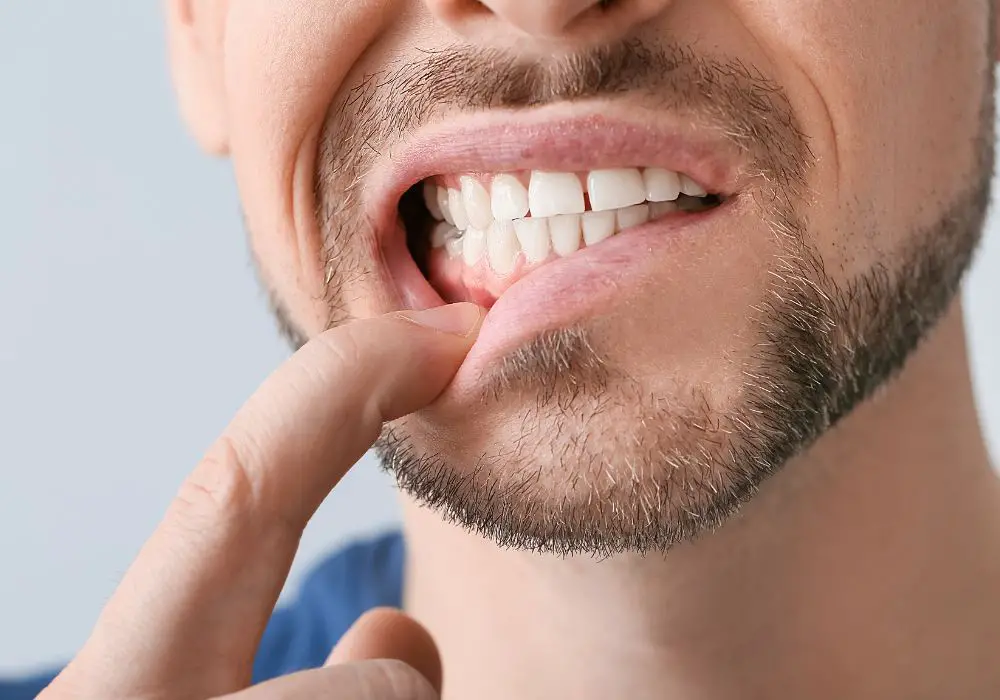
Schedule an appointment with your dentist if you experience any of the following:
- Bleeding, swelling, or redness of gums that persists after stopping jogging
- Pus discharge from gums
- Painful sores or ulcers on the gums lasting over 2 weeks
- Constant sensitivity and pain interferes with eating hot and cold foods
- Loose permanent teeth
- Sudden, severe jaw pain and difficulty opening your mouth fully
These symptoms indicate potential gum disease, abscesses, or other dental issues needing immediate treatment. A dentist can examine your full mouth, diagnose underlying causes, and provide specific solutions for running-related gum problems like prescription strength mouth rinses or customized night guards. Proper dental care helps you continue running pain-free.
Frequently Asked Questions About Jogging Gum Pain
Why do my gums hurt hours after jogging is over?
Gum pain that persists long after exercising is usually from dehydration or irritation rather than just normal soreness. Drink water and rinse your mouth to rehydrate. Use ibuprofen to reduce post-jogging gum inflammation.
Are bleeding gums normal when jogging?
Frequent bleeding from your gums when jogging usually signals gum disease like gingivitis. See your dentist to treat the condition before it worsens and interferes with running. Preventative care helps minimize gum bleeding.
Should I avoid jogging if I have sensitive gums?
You don’t necessarily need to avoid jogging if you have mild gum sensitivity. Try using preventive methods like mouthguards first. But refrain from running if gums are very painful or you have advanced gum disease until your dentist gives the okay.
Is chewing gum while jogging helpful for sore gums?
Yes, chewing sugar-free gum during runs can promote saliva flow to combat dry mouth gum pain. Pick a soft gum that’s gentle on gums. Flavored gums also freshen breath. Just be sure to discard gum properly after jogging rather than just dropping it outdoors.
Should I take a break from jogging if I have a gum abscess?
Yes, don’t go jogging if you have a dental abscess on your gums. The bouncing motion and increased blood flow can worsen the infected gum pocket. See your dentist promptly for antibiotics and drainage of the abscess before running again.


